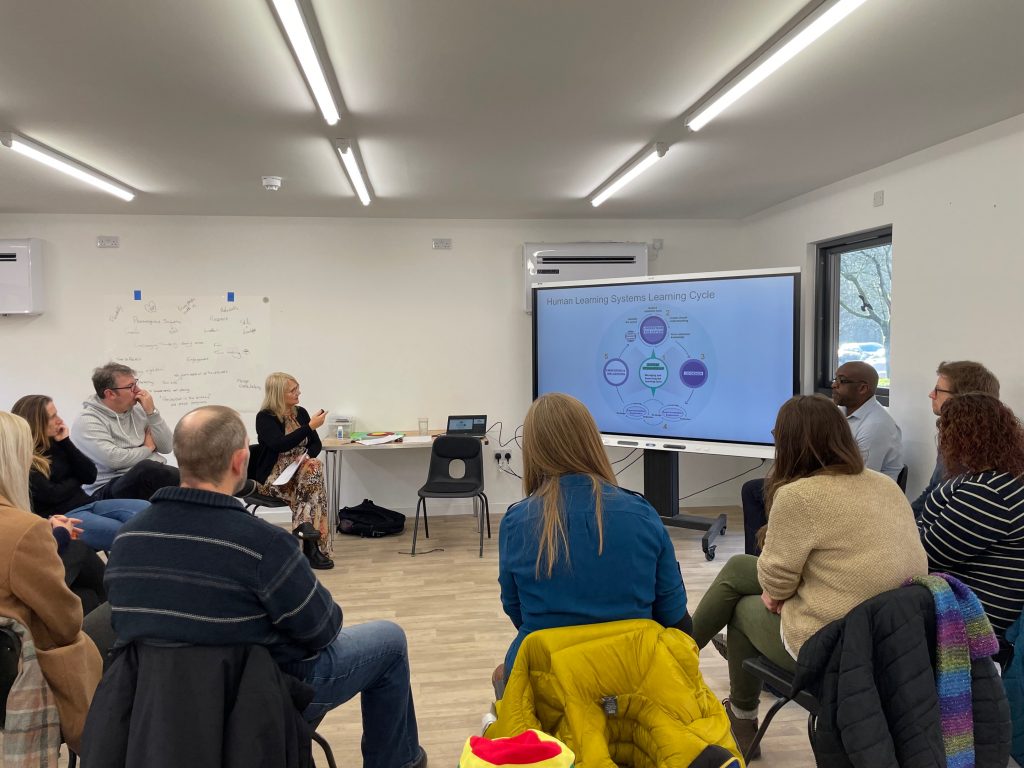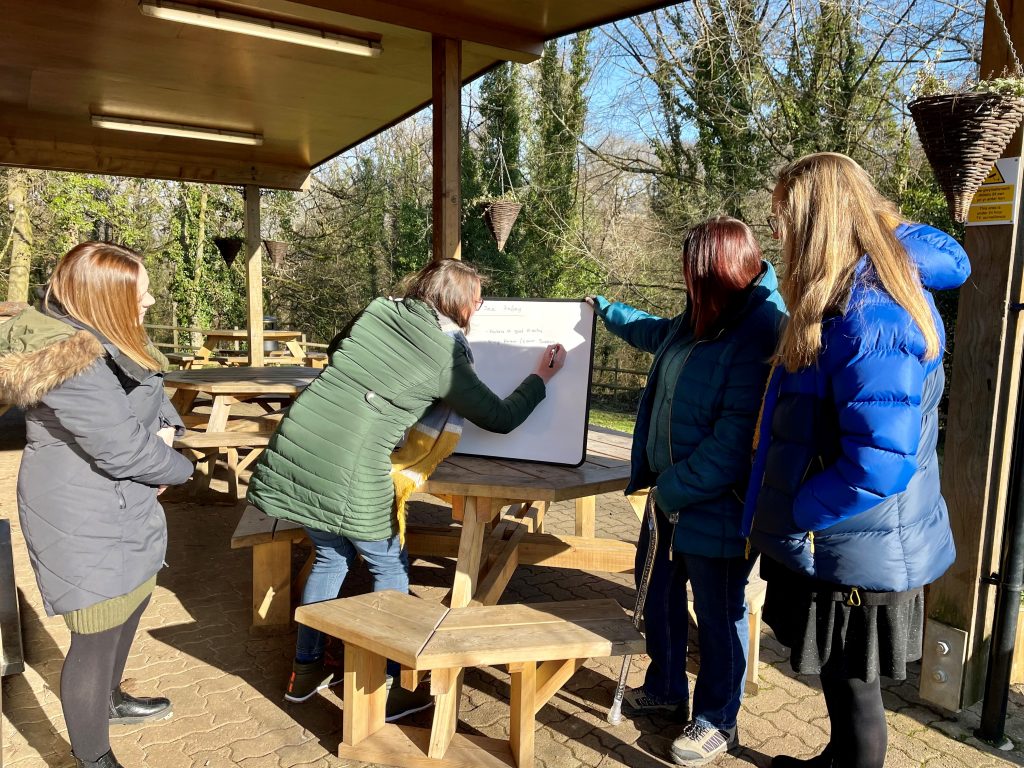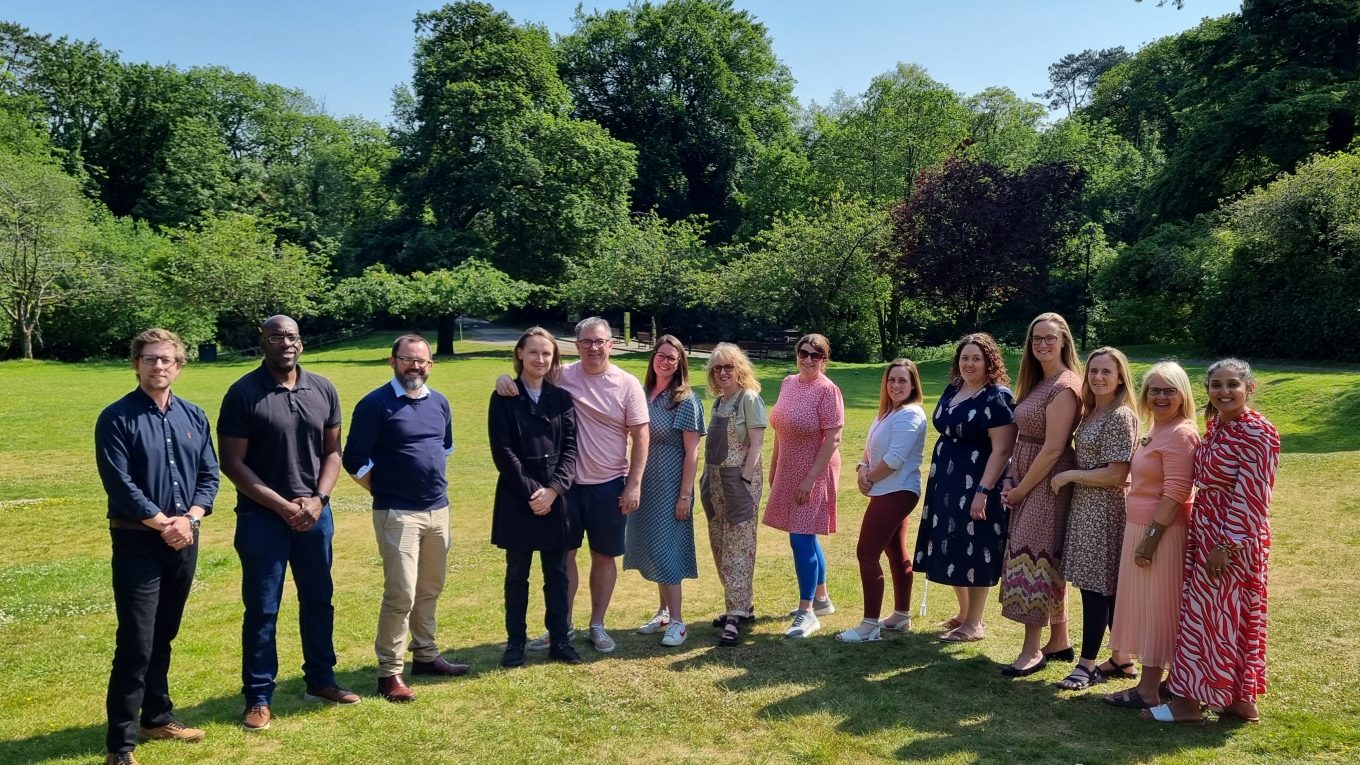Exploring different approaches to help new complex programmes of work
To further mark Learning Disability Awareness Week (19-25 June), we caught up with Dr Hamish Cox CPsychol, Q Lab Cymru Insight and Reflective Practice Manager, and Rebecca Curtis, Learning Disability Senior Improvement Manager to share learning from their recent collaboration project.
Adopting a Human Learning Systems approach, Q Lab Cymru (QLC – read more on the initiative here) and our Learning Disability Team (LDT) held a series of collaborative workshops. The teams explored, developed, tested, and implemented ideas to help shape the development of the Learning Disability Improvement Programme for Children & Young People.
The workshop series

The LDT approached QLC for their help early on as the team were keen to ensure this new programme of work adopted a person-centred approach with an emphasis on learning.
QLC designed a workshop series that focussed on a Human Learning Systems (HLS) approach. It provides a guide to critical thinking and action, rather than a rigid model or framework. Its central tenet of learning provides an exploratory lens to establish small scale experiments that help to enable large scale change.
Whilst not a particularly new approach, its founders, as expected, are still learning how it can be utilised across sectors. The QLC team took comfort in this openness to guide their own exploratory approach in utilising HLS for the first time.

The workshop series was intended to spark curiosity and creativity. To foster the team’s creative energy, the workshop series venue (Bryngarw Country Park) was specifically chosen to provide a sanctuary for imagination and a sense of separation from an office-based working environment. Reflective ‘walk-and-talks’ and taking inspiration from nature became the cornerstones of critical discussions.
Hamish said, “The workshop series was designed to incorporate a collaborative and iterative process that allowed for adaptability based on the LDT’s needs. Taking a collective coaching-based methodology, we introduced the LDT to the HLS language and key concepts whilst supporting their discussions and placing reflective practice at the core of learning. To support the HLS flexible approach, we also incorporated complementary systems-based tools and thinking aids, including Critical Systems Heuristics (Ulrich & Reynolds, 2010), and Participatory and Appreciative Action and Reflection (Ghaye et al., 2008).”
Key Learnings
It quickly became evident that the HLS approach would benefit each team member across the entire learning disability work programme, given its emphasis on sharing learning within and across systems.
Rebecca said: “Working with QLC has been an extremely positive experience and on a personal level, my biggest takeaway from the workshops is that it is okay to start in the place you are at, even when you’re navigating large, complex (and often chaotic) systems.
My HLS journey has allowed me to be more reflective as a person, thinking about what my core values are and how this translates into the way in which I develop and maintain relationships and connections at work. It has also allowed me to sit with the ‘uncomfortable’ conversations and to think about how I learn as a person and how I seek to share my learning across my networks.”
Next steps
Partners in Welsh Government (WG) also attended the first workshop. Rebecca said: “The next steps will include a feedback session with WG to highlight how HLS will inform the LDT’s activities going forwards. There has been a lot of energy and creative thinking within the team, and we have had discussions with QLC in relation to ongoing support to help us implement some of our thinking as the next steps.”
If you would like to find out more about the work of QLC please visit their webpage. You’ll find further information on the work of Learning Disability Improvement Cymru here.
References
- Ghaye, T., Melander-Wikman, A., Kisare, M., Chambers, P., Bergmark, U., Kostenius, C., & Lillyman, S. (2008). Participatory and appreciative action and reflection (PAAR) – democratizing reflective practices. Reflective Practice, 9(4), 361-397.
- Ulrich, W. & Reynolds, M. (2010). Critical systems heuristics. In M. Reynolds, & S. Holwell (Eds.), Systems approaches to managing change: A practical guide (pp. 243-292). London: Springer.

